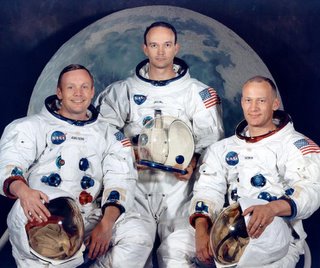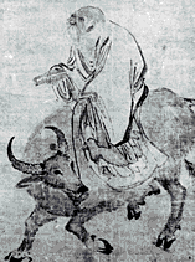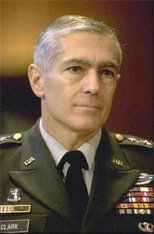Two days before President Bush is to give his annual State of the Union speech, Wesley Clark was invited to deliver a speech at The New America Foundation in Washington, D.C. It is a great speech. It could bring a turning point. Here is the text in full.
THE REAL STATE OF THE UNION 2006
THE NEW AMERICA FOUNDATION
Monday, January 30, 2006
General Wesley K. Clark Addresses New America Foundation Audience (1/30/06) on Capitol Hill: "The Real State of the Union 2006"
Thank you for that kind introduction. And thanks to the New America foundation for getting us together today to discuss these important issues.
It is a privilege to be with you this afternoon to address the state of our Union, to offer an assessment, and to tell you how the our Union can be great again -
For today we are into our fifth year of war abroad and threats at home, and the state of the union is not what it should be, and not what it could be....
I want to express my admiration and appreciation for the men and women in our Armed Forces, and their families. They have served with courage and honor and with incredible skill.
They have volunteered, and served selflessly. Over 2200 have died in Iraq, others in Afghanistan, and tens of thousands have come home with the injuries and scars — physical and mental - that will mark them forever.
Won't you stand and join me in recognizing them, and all our veterans, with a round of applause?
A few weeks ago, as I rode across the Queensboro Bridge into Manhattan, the Pakistani-born cab driver interrupted my thoughts with his own story and reminded me why we all should feel this sense of privilege to be here in America....
"We came as three brothers," he said... "we came nine years ago...only I am still driving a cab....we own a store now, and a restaurant, and soon I will join the others full time in the restaurant....when we came we had nothing, but today....Only in America," he said, "could we do this, ONLY IN AMERICA!"
His story is the story of hundreds of millions of us and our forefathers who came here from somewhere else, who dreamed, dared, planned and struggled to forge new lives, raise strong families, and together, generation after generation we have built a great nation... exceptional…unique.
We are a nation where liberty is protected by the Constitution, a nation where people choose their own leaders, and a nation where government's power is limited. Generation after generation, America has throttled the self-serving impulses of the powerful and restrained the powerful passions of the multitudes, thus guaranteeing that the freedoms and opportunities of every citizen enumerated in law are provided in practice.
And in the process America has become a Beacon of Hope for people everywhere.
Unlike the taxi driver, I was born here. I learned to love this nation as a youngster growing up without a father, at a time when all our institutions and values were under attack by Communism.... I loved this nation enough to serve as a soldier, to come home from war on a stretcher, enough to stay in uniform for another thirty years....
My family and I lived in Germany, Belgium, and Panama, in Kansas and Kentucky, in Virginia and California, in Texas and New York.
Over time, like other officers I was given increasing responsibilities for others, commanding units, teaching courses, providing staff advice and assistance. We were at various times responsible for the work they did, the lessons they learned, the health care they received, the homes they lived in, the schools their children attended, the lives they led... and I learned about our country, our people, and how we are perceived in the world.
I was so proud to represent America in uniform....
And this is why today, I come before you with concern.... not in a spirit of partisanship, but because our nation is in trouble, veering from its heritage, and sliding into a dangerous future.
It doesn't have to happen this way, but we can change course only if we speak honestly and directly about what's gone wrong, and why, and how we must change, and then reach across Party lines to bring the American people together.
Today, billions of people abroad believe that America's beacon is fading, our star is dimming, and that America's time is passing. Why?
Because four years after 9/11, Osama Bin Laden remains on the loose in the fastness of western Pakistan, and Al Qaeda remains a potent force among millions of Muslims.
Because the threat of terrorism has actually increased, partly as a result of the unnecessary invasion of Iraq, where after almost three years, we find ourselves enmeshed in an intensifying sectarian struggle that is drawing in jihadi terrorists like a magnet and creating a new cadre of hardened opponents to America and our friends.
Because, despite our tough talk, Iran is discarding its international obligations in the apparent pursuit of nuclear weaponry, while simultaneously questioning Israel's existence and raising the specter of wider conflict in the Mideast.
Because, North Korea, with a standing army of more than 1 million men, armed with chemical and biological weapons as well as long-range missiles, is defying US efforts to contain its threat of nuclear proliferation.
Because, in the process of this struggle against insurgents and terrorists and the proliferation of nuclear weapons, we are in danger of losing the very principles we are fighting for as revelations of torture and degrading treatment of those detained confound our long standing commitment to human rights and undercut our moral strength and leadership.
Because America's long-standing commitment to assisting democracy abroad was recklessly transformed into hot rhetoric and direct action in Iraq— and it has not only offended cultural and national sensitivities in the Middle East, but it is also contributing to the anger and violence in the region.
Because while we are distracted by the war on terror, Iraq and Afghanistan, rising global competitors like China are taking advantage of the security umbrella we have created to lock in their own access to the resources needed to fuel their stupendous growth.
Because the United States has stood silently while the historic opportunity of a democratic Russia is systematically crushed and other new democracies threatened by the same power ministries and entrenched authorities that enslaved hundreds of millions during Communism's long reign.
Because our oldest friends and Allies, in Europe and Asia, are questioning America's commitment to the dialogue, institutions, and principles that kept us safe throughout the Cold War and even helped end ethnic cleansing in Europe during the 1990's.
The plain truth is, in America's rhetoric and conduct since 9/11, we've made more enemies than friends in the world - and that's no way to protect the American people!
And all of this at a time when Americans are more dependent on events abroad than ever before: the war in Iraq; the daily notification of losses; the threat of another terrorist incident; the rising price of gasoline, a global economy.
And here at home, to speak candidly, that beacon of hope is flickering also.
Again we ask why.
Because we're losing our manufacturing base in America, and failing to face the realities of a global labor market, international trade and capital flows which are robbing millions of Americans of income security and have mired us ever deeper in debt.
Because, while, statistically, the unemployment rate may be a little below 5% now, according to the way the Administration measures, these figures mask millions of people in the ranks of the long term unemployed, or trapped in low wage jobs, or underemployed in jobs which fail to use their skills.
Because even highly skilled jobs in the so-called knowledge industry are moving abroad, with big firms like Microsoft and GE as well as thousands of highly competent foreign-born, US educated entrepreneurs and business leaders seeking new talent, lower-cost labor and less competitive, friendlier business environments.
Because at home more than 45 million Americans lack access to health insurance, a profound systemic failure and imposes a staggering human cost on those least able to bear it and drives businesses offshore.
Because both our infrastructure and our system of public education lack essential modernization and reform, caught in a squeeze between rising costs for salaries, supplies, construction and repair, and rising federal deficits.
Because despite over thirty years of warning, this nation still has no policy to lead us to energy independence and away from the volatile and conflict-ridden regions where, today, the "geostrategic risk premium" is adding billions of dollars to the costs imposed on the American people.
Because the legal protections for the environment and natural resources on which so much of our economic welfare depends have been steadily undercut by new laws and policies, even as the Administration has tightened restrictions on the scientists and analysts who could tell us of the dangers ahead.
All this is common knowledge.
But what perhaps most surprising this year — despite the skill and dedication of our civil service, diplomatic, and military personnel - was the tragic incompetence of our government: failing effectively to assist the states in the terrible humanitarian catastrophe of Katrina, stumbling through a repetitive cycle of inflated rhetoric and crushing disappointments associated with reconstruction and reform in Iraq and the Middle East, and frustrating millions of American seniors floundering through a poorly designed and badly under resourced Medicare prescription drug program.
Even worse, has been the emergence of what appears to be a culture of corruption reaching from lobbyists, through the Republican leadership in Congress, and into the White House itself.
No wonder so many believes that America is a nation in trouble, squandering our precious resources in a destructive and unnecessary conflict abroad and a spendthrift economy at home. We are, they say, neglecting our future, failing in our duty to our children and grandchildren, and denying them the opportunities to dare, to dream, to achieve and create that our generation and our predecessors have enjoyed.
And they have a strong case.
What has happend to us?
We Americans can no longer hide behind our oceans, or pretend that the dialogue of politics should be confined to disagreements about domestic policy alone. And as for the partisan charge that Democrats are living in a pre-9/11 world, let us be very clear: the policies followed by this Administration since 9/11 - the belligerent tone, the unilateralism, the excessive reliance on military force are not making us safer; they are increasing the dangers we face abroad and distracting us from the most important challenges here at home.
From the late 1940's until the early 1990's, America led the world in winning an historic struggle, a victory in the Cold War against the tyranny and oppression of Communism.
We were guided abroad by a largely bipartisan strategy of containing the spread of Communist ideology, deterring the Soviet use of force, and supporting those who shared our values. And at home the stress of this titanic struggle inspired efforts in science and technology, industry, agriculture, education, health and fitness.
Over a period of forty years we persevered — through diplomacy, alliances, ideological struggle, and armed conflict in Korea and Vietnam. And in the end, we won — the Berlin Wall came down, the Soviet empire collapsed, and the Soviet Union disintegrated into 11 separate states.
It was the triumph of American ideals — of the nobility of the human spirit, the priceless significance of freedom and human rights, and the incredible creative force of a free-market economy.
But when we defeated our old adversary, we not only lost our opponent, we also lost our strategy — our organizing principles — the animating principles of our society, and much of the cohesion that held our world together.
Oh, we did well economically in the 1990's, creating jobs, reducing poverty, balancing the budget - but the United States never quite put in place another strategy, another publicly understood, bipartisan set of principles which could guide America's policies at home and abroad, and take us safely into the future. We had taken economic advantage of the global opening, but we really didn't understand how to mitigate the many strategic risks it brought along.
And then, four and a half years ago this nation was viciously attacked in a serious of terrorist hijackings of airliners that resulted in three thousand innocents' deaths. 9/11 was an act of war.
Action was required. America struck back at the terrorists who attacked us and the Taliban government in Afghanistan that supported them.
And we should have.
But, soon the errors began:
- Letting Bin Laden slip thru the noose at Tora Bora, in December, 2001 and failing to commit sufficient forces to Afghanistan to finish the job there gave the terrorist movement continuing stature and enabled a host of local imitators to ride his coattails of impunity.
- Naming an "Axis of Evil" helped drive the North Koreans and Iranians to accelerate nuclear weapons efforts and probably spurred a deepening cooperation, even as the term itself offended allies and convinced millions around the world that a just American effort against those who attacked our country was being transformed into a self-righteous moral crusade against those of different religious convictions or geostrategic alignment.
- Invading Iraq, neglecting North Korea, and ducking the diplomacy on Iran — and labeling it all with a bellicose-sounding strategy of preemption left us concentrating the greatest resources on the least urgent strategic problem and doing so in a way that has exaccerbated the threats we face.
- Ignoring our European allies and sidelining NATO left us bereft of the strong Allied support necessary to succeed in Iraq and simultaneously meet challenges elsewhere.
- Pushing through a series of deep permanent tax cuts using the pretext of a temporary recession have prevented us from addressing urgent issues at home and shoved the nation into long term and unsustainable budget deficit.
- And in the press of partisan politics, the governing party has elevated the role of money in American politics higher than ever before, encouraging a "pay to play" culture of corruption and aiming to control the political agenda with a ferocity almost unprecedented in American history, undercutting the common good and threatening the very Constitutional principles which guard our most precious freedoms.
What's gone wrong? In the last five years we have seen leadership without vision or foresight, a backwards look to tough talk and excessive unfair tax cuts, and a misguided idea from the 1990's that uncooperative Middle East regimes could be "cleaned up" by American military action.
And at the same time we've seen such partisanship that many believe that this Administration lacks the basic decency to respect its political opponents, and the fundamental integrity to adhere to common standards of transparency, honesty, and ethics in government.
Enough is enough!
Americans are ingenious, energetic, pragmatic, and almost inevitably optimistic. But they are also keenly aware of reality — and today a strong majority disapproves of the way our President and the one-Party rule on Capitol Hill are leading the country.
WE CANNOT AND MUST NOT STAY THAT COURSE.
A Forty Year War on Terrorism — which I have heard trumpeted more than once in this town — and which may well be required, particularly if we continue on this course — simply fails to provide the comprehensive strategy and framework — comparable to deterrence and containment in the Cold War - necessary to direct American policy abroad or guide needed change at home. We are a nation adrift, and America senses this.
Here's what we must do.
First, we've got to set things right at home. Protecting our Constitution comes first. Country before Party. Congress must fulfill its duties to the American people, not rollover for favors from the Executive branch. We need a full, in-depth, bipartisan investigation of the Administration's bypassing of the Foreign Intelligence Surveillance Act.
Congress needs to show resolve that the laws it passes do bind the executive branch, whether in wiretapping, humane treatment of prisoners, or the freedom of information act. Moreover, it is time for a special prosecutor, independent of the Department of Justice, to be empowered to investigate the Abramoff scandal, and pursue the leads all the way through Congress and up to the highest office in the land, if necessary. Get it out and get it over.
Then, we have to focus on the principal challenge ahead: preparing our nation to succeed in a 21st Century world where capital and technology flows instantly across borders, where the labor market is global, and where the benefits and security Americans have taken for granted are put at risk as supergiant countries like China, with 1.3 billion people, grab resources, spur their own economic growth, redress old grievances, and naturally pursue their own interests.
Today, we are indisputably the world's most powerful nation, but how we organize and prepare America at home, and provide leadership abroad, in the face of China's growing power, is the real and enduring challenge that 21st Century America must answer.
Can we protect that which we value, welcome and profit from China's growth, maintain our own security, and avoid the conflict and war which has so often accompanied historical changes such as we will witness? I believe we can, if we see clearly what must be done and bend our will to do it.
It begins at home, for this is where the most intractable problems lie, with public education, health care, and creating a business environment that encourages innovation, growth, and the creation of meaningful valued jobs.
-In education, we should be offering public preschool across America, encouraging renewed study of mathematics, sciences and engineering, and reform and change must be deep and fundamental creating the community programs needed to assure that every American child graduates from high school.
We must commit more resources to public education — not pull them away with voucher programs - but the most important resources are not financial — they are the commitment of community leaders to create public schools emphasizing learning and character, and the commitment of parents to work with their children, to assure they are fully engaged in the classroom and at home in preparing for their own productive future.
We need to reward teachers for their skills and commitments, but the best form of teacher accountability is not found in standardized testing but in the dialogue between teachers and parents centered on the love and respect for each child in the class. And no student who seeks to go to college should be denied that opportunity because they can't pay.
-In health care, we need to take better advantage of modern technology to practice evidence-based medicine, in which treatments and practices are based on statistically proven results — not commercial advertising — and doctors and hospitals are held accountable for their performance, not just by the threat of malpractice but by the day-to-day quality of their results.
We need to harness the innovation of our biotech, pharmaceutical, and health insurance industries better to serve the public good, not just the private gain of shareholders. No child in America should grow up without regular medical check-ups and care — or regular exercise and physical fitness - and every adult should be provided access to the kinds of diagnostic testing and preventive treatments which can slow the onset of aging diseases like diabetes, atherosclerosis, and Alzheimer's. Additional insurance coverage should be directed to catastrophic illness and injuries, the kind that wreck families and shatter productive lives.
And inevitably this will mean transitioning over time from a work place centered, private payer system toward greater reliance on some form of single-payer system to ease administrative burdens and reduce costs.
-In the business community, we must spur research, development, and innovation, and the growth of the small companies that provide the majority of US employment. This will mean more private-public partnerships in developing new technology, and in linking our universities to business enterprises, as well as an expanded arsenal of economic and tax incentive programs aimed primarily at small businesses.
We must assure investments in the technology infrastructure — the broadband and wireless access improved and modernized highway, air, and rail transportation systems, and the access to affordable, reliable sustainable energy essential to continuing economic development.
We must have a real plan to achieve "energy independence."
And we need to do so without further damaging our fragile environment.
In fact, sustainable energy and so-called green engineering provide major growth opportunities for American ingenuity, and we must move in that direction.
We must chart a new path for labor in America, and probably for the union movement itself.
While workers still need help in redressing grievances against management, perhaps the old dividing lines make less sense in an age of high technology, social and geographic mobility, and global competition.
Is it possible that unions could become the "development agencies" for workers, protecting their rights, but also promoting their training, education and career development throughout a lifetime of many different skills and jobs? And if they don't who will.
For we know that in today's economy learning is a lifetime process and every American in the workplace must take increasing responsibility for his or her own development of skills, pursuit of opportunities, and creation of financial security for the family.
-And to address these and many other issues, our government will need more resources, for the great discovery of twentieth century America was not that we should get "government off our backs" but that government's could be a partner in the economy -in infrastructure, in regulation, in research and development, in education, and in health — laying the foundation for the achievements of private industry. In particular, we need resources to empower our people, with new programs comparable to the landmark contributions of the Homestead Act, the GI Bill, and the 30 year Mortgage in order to give every child in America a head start in education, business, home ownership, investment, and economic opportunity.
But we must raise resources in a way that protects the most needy and working families, and that still provides opportunities for the creation of the wealth that is the hallmarks of the American dream.
America's great strengths are our economy and the spirit of our people. And if we take these major, fundamental measures, we'll be well positioned to cope with the economic challenges of China's rapid development.
But we must also take other, urgent steps to assure America's security now.
Turning first to the Middle East, we need to use American military commitments to broker political arrangements that bring the Sunnis back into the Iraqi political system, delegitimate the insurgency, and reduce the threat of escalating civil war. We should create a regional security dialogue, in which we and the Iraqi government can hold real conversations with neighboring states, including Iran and Syria.
A substantial US troop presence will likely be required for years — and I am mindful of the sacrifices that we are asking from the men and women in the armed forces and their families.
It is a heavy burden, and they alone have been asked to bear such sacrifices - but we should draw down as rapidly as political objectives can be achieved and Iraqis can secure their own country.
Today, Syria presents an historic opportunity for the United States. Rather than just threatening Syria, we should talk directly to Bashir Assad, encouraging him to lay the foundations for economic and political opening and gradual transformation, cut off insurgent access through Syria into Iraq, and end the sponsorship of Iranian-backed terrorist institutions, in return for stabilizing his administration during the ongoing UN investigations.
And this in turn, will give us greater traction against Iran's steady march toward nuclear weaponry.
But actions on Iran are urgent.
We should join now — right now - in opening new talks with Iran, in which we ourselves participate, before pressing for UN action or moving toward the military option. No one should be mistaken: there is a military option.
We can strike hard enough to set back Iran's nuclear quest by many years, and take out much of their military capacity in the process. And we can at the same time protect most of the oil flow from Iran and deny their capacity to block transit through the Straits of Hormuz. But we also must recognize the possible consequences of this action: an embittered, vengeful Iran, seeking further destabilization of the region. Far better to pursue dialogue now, whatever the precedents, and save the military option for truly last resort. Understand: unlike others you may hear, I know when and how to determine our course with Iran.
As for Israel and the Palestinian people, there is no longer a "road map to peace." But Israel is increasingly secure.
It is now up to Hamas to form a government for the Palestinians. But they should be under no misunderstanding. Hamas is an international outlaw so long as it demands Israel's destruction.
The war against terrorists will continue, as it must. But it should be conducted with a new resolve to use diplomacy, local authorities, and international cooperation among law enforcement and intelligence agencies, reserving military forces only as a last resort.
Ultimately, we will not prevail in this war by killing terrorists — though that may need to be done — but rather by winning the battle for greater tolerance, understanding, and respect between peoples of differing religious convictions. It is first and foremost a battle of ideas. We need to bring terrorists to trial. And we must carefully guard our own values and principles, for in this struggle, moral leadership is far more valuable than pittances of information gained by compromising our beliefs.
We are still in danger from events in Southwest Asia.
We need to cooperate with Pakistan to eliminate the new terrorist base area forming along Pakistan's frontier with Afghanistan, and sustain an enlarged commitment to Afghanistan for many years.
But more fundamentally, we need to redirect the main thrusts of American efforts abroad. We need to rebuild our ties with Europe, with NATO as the foundation, and a new Atlantic Charter as the means. Europe is our "base," more than 400 million people with whom we are the most closely aligned in terms of values and interests, economics and power. Together we can move the international system. Isolated, alone in a multipolar world, America simply won't fare as well. And we should strengthen ties with India, the world's largest democracy and itself a rapidly developing superpower.
If we are to avoid the reemergence of a 19th Century balance of power system replete with threats and warfare between states and alliances, we must use this period of American preeminence to rebuild the system of international laws and institutions which two generations of American leaders fashioned and extolled. We should set the example in shaping and obeying international law. Likewise, we should lead in the reform of the United Nations, seeking its full potential as a place for dialogue and the expression of values, and as the source for international law and humanitarian assistance in emerging crises.
Fellow Americans, although our nation is incredibly wealthy and uniquely powerful, we are at historic turning point. Facing multiple near term crises and a great and long term challenge to our very identity as Americans, we have critical choices to make.
Will we choose to emphasize boastful rhetoric or constructive engagement abroad? Will we lash out in anger with military force, or will we pursue every reasonable avenue to avoid the terrible destruction of war? Will we fight fire with fire," relying on the means and techniques of our adversaries, or live and lead by the higher standard of the values we have professed?
At home, will we persist in shortsighted partisanship, or will we follow a stronger vision to the deep reforms needed to secure our future? Will it be selfishness or teamwork that is our rallying cry?
These are the choices before us.
I welcome the opportunity to participate in this great American adventure as we seek our destiny.
America's Beacon of Hope must shine brightly once more, lighting our beloved country and illuminating the whole world.
And if we choose wisely, it will.






















